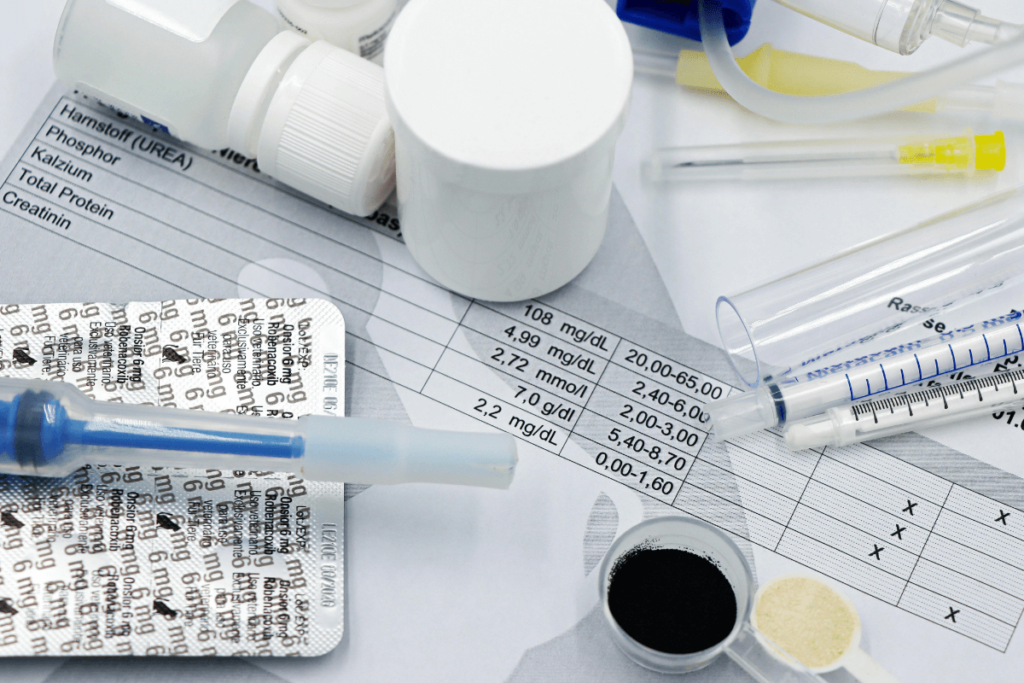If you’ve used shrooms and now need to take a drug screen, you may wonder about the likelihood of testing positive. Do mushrooms show up on a drug test? And if they do, how long is the detection window?
Are you or a loved one struggling with addiction? Our team is available now to answer your questions, discuss treatment options, and verify your insurance. Take the first step toward healing—call us today to get started.
What Are Mushrooms?
To appreciate why some people ask, “Do mushrooms show up on a drug test?” it can be helpful to review a few facts about what mushrooms are, how they work, and what dangers they may pose.
First, we need to establish what, exactly, we’re talking about when we talk about mushrooms.
In a substance use context, this term can refer to more than 150 different species of mushrooms that cause hallucinogenic or psychedelic effects. These fungi often referred to as magic mushrooms or shrooms.
These mushrooms can be eaten in their natural or dried form, swallowed in a capsule, added to gummies or other edibles, or brewed into a tea.

Psychoactive Ingredient
Psilocybin is commonly recognized as the psychoactive ingredient in magic mushrooms, but psilocin is actually the substance that causes people to hallucinate and experience other effects. When a person ingests a mushroom that contains psilocybin, their body converts it to psilocin.
Research suggests that psilocin activates a receptor in the central nervous system that is associated with serotonin. This activation appears to increase activity in some brain regions, decrease activity in others, and alter communication among these various regions.
Effects
The changes in brain activity and communication that are caused by psilocin can cause a range of effects, including:
- Distorted perceptions of time and space
- Depersonalization, or the sense of being detached from your mind and body
- Derealization, or the sense that your environment is not real
- Visual and/or auditory hallucinations
- Synesthesia, a type of perceptual alteration that can include hearing colors or seeing sounds
- Sense of serene euphoria
- Greater sense of connection with others and with the world
Common physical effects of using magic mushrooms include:
- Dilated (wide open) pupils
- Dizziness or lightheadedness
- Impaired coordination
- Nausea and vomiting
The types of effects a person experiences – including the negative ones discussed in the next section – can be influenced by a range of factors, including which type of mushroom you ingested, how much you used, your frame of mind when you took them, and your environment.
Dangers
One of the most widely recognized dangers of using mushrooms is the risk of a “bad trip,” which can include effects such as:
- Frightening hallucinations
- Heart palpitations
- Anxiety
- Paranoia
- Sense that time is not moving
- Intense negative thoughts
- Belief that you are “going crazy”
Since it can be extremely difficult to differentiate between magic mushrooms and toxic fungi, another potential danger of using shrooms is poisoning.

Do Mushrooms Show Up on a Drug Test?
The speed with which your body processes and eliminate a substance is usually measured in half-lives, or length of time it takes for an amount of the drug to be reduced by 50%. It typically takes four to five half-lives before a substance falls below what experts consider to be a clinically significant level.
The half-life of psilocin is about one to three hours, while psilocybin has a half-life of about one to two hours. This means that psilocin may remain in your system for 4-15 hours, while psilocybin may be present for 4-10 hours.
These are of course only general estimates, as the exact amount of time you have shrooms in your system can also be affected by factors such as your age, weight, and metabolism, as well as which type of mushroom you used and how much you ingested.
Types of Tests
While half-lives are critical for determining if mushrooms show up on a drug test, they are by no means the only factor. The likelihood of testing positive can also be influenced by what type of sample you need to provide as part of the screening process:
- Urine: A urine test may find evidence of mushroom use for up to 24 hours after you took them.
- Blood: You would likely only test positive for mushrooms for about 12 hours after your most recent use.
- Saliva: Various estimates put the detection window for shrooms on a saliva test at 12-24 hours.
- Hair: An analysis of your hair follicles may detect shroom use for up to 90 days (three months) after the last time you used them.
However, if you have shrooms in the sample you provide, that doesn’t mean you’ll test positive. This is because most drug tests aren’t designed to find evidence of psilocybin or psilocin.
For example, most standard work-related drug tests use 5-panel screens, which are set up to detect the following five substances:
- Amphetamine
- Cocaine
- Cannabis (marijuana)
- Phencyclidine (PCP)
- Opioids such as heroin and morphine
More expansive standard drugs screens and the substances they usually detect include:
- 7-panel: The five drugs from the 5-panel screen, plus benzodiazepines and barbiturates.
- 10-panel: The 7-panel drugs, plus methadone, propoxyphene, & methaqualone (Quaaludes)
- 12-panel: The 10-panel drugs, plus MDMA (ecstasy or Molly) and fentanyl
So, given all of these factors, do mushrooms show up on a drug test?
It is possible, but unlikely that you will test positive for shrooms on a standard drug screen. You will test positive only if you take a specially designed test within the period of time that psilocin or psilocybin is still present in your system.
Find Addiction Treatment in Georgia
The best way to avoid testing positive on a drug screen is to not use recreational substances. If you find it difficult to stop using mushrooms or any other drug (including alcohol), please know that help is available.
Serenity Grove is a premier source of personalized care for adults who are struggling with addiction, as well as those who have also been experiencing anxiety, depression, or other co-occurring mental health conditions.
Our continuum of care includes detox, residential rehab, and multiple outpatient programs. At each level, you can expect to receive focused treatment and compassionate support from a team of highly skilled professionals.
To learn more about how we can help you or a loved one, or to schedule a free assessment, please visit our Admissions page or call us today.


